Wake Forest launches Center for Literacy Education
The initiative connects campus and community partners
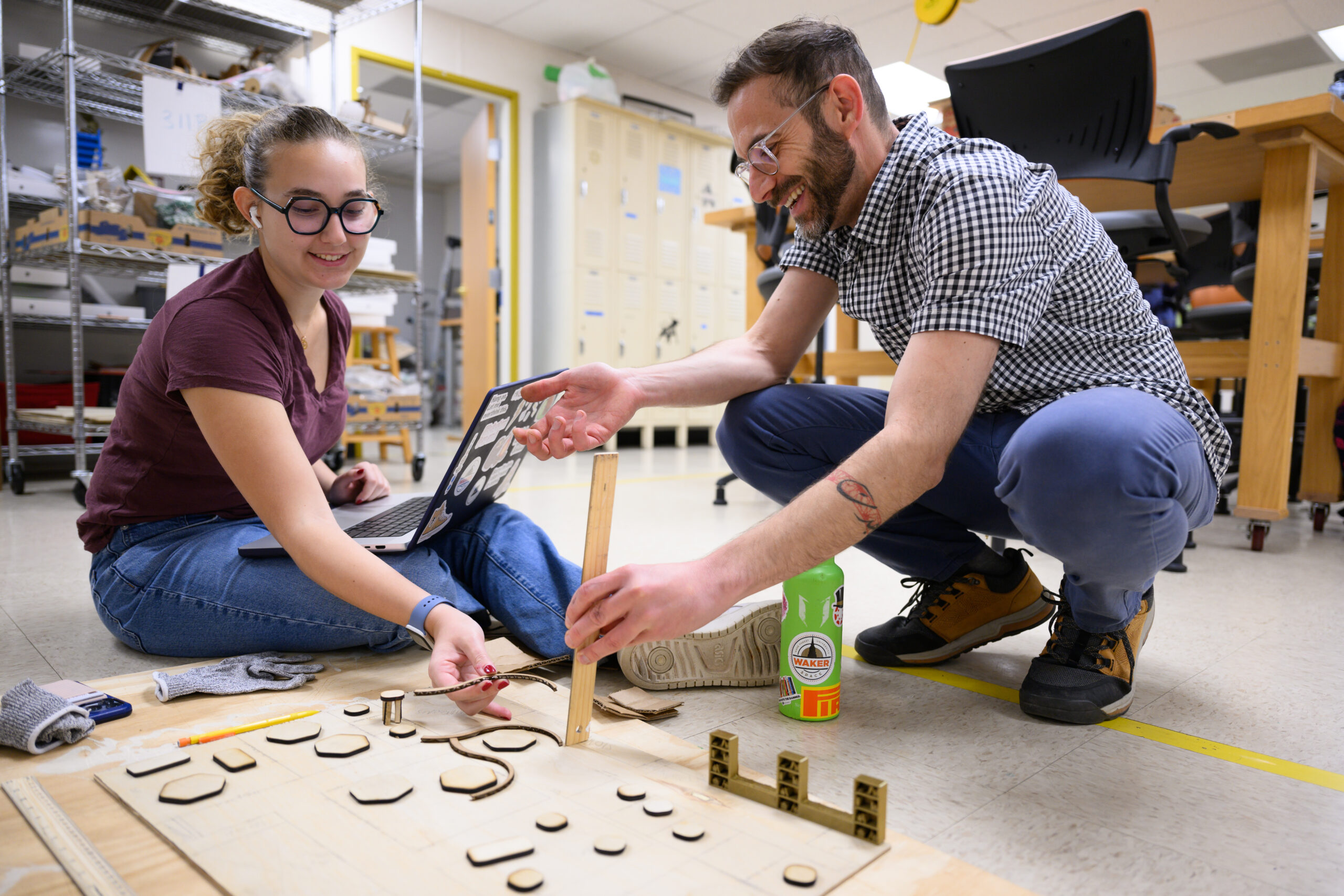
Wake Forest University has launched the Center for Literacy Education to explore how literacy education can strengthen individuals and communities through teaching, research, creative activities and programming.
In today’s world, literacy means more than the ability to read and write.
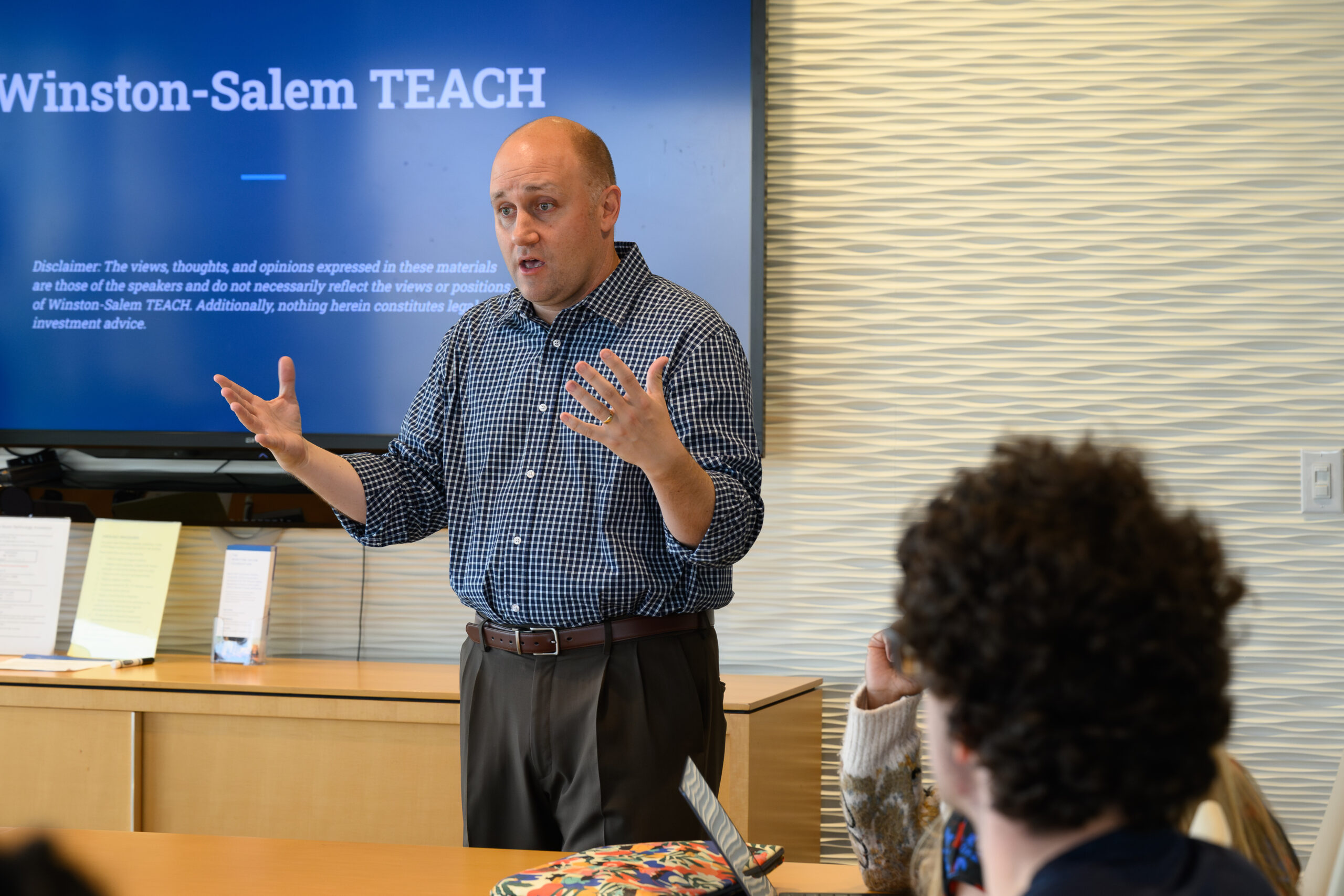
“Literacy affects all aspects of how we live and learn,” said Alan Brown, director of the center and associate professor of education. “From health literacy to historical and civic literacy to stem and environmental literacy, I think there are a lot of possibilities for all sorts of collaborations across the university. It’s about creating space for conversation around what the interests are at Wake Forest and how we might support one another to do this work.”
The initiative, funded by the provost’s office, provides mini-grants to Wake Forest faculty, staff and students for literacy-related activities, including community-facing programming.
Additional information for Wake Forest faculty and staff interested in connecting with the center can be found on the Center for Literacy Education website.
Bringing literacy to life for kids and adults
The center’s primary goals are to support programming that brings literacy to life, including through engagement with schools, communities and families in a variety of literacy areas, such as civic, information, and digital literacies.
“What makes this center different from others across the country is this interdisciplinary and intergenerational aspect that spans projects from pre-K to adults. Our vision is to work with folks at Wake Forest as well as various groups in the broader community,” said Brown.
Hosting a speaker to highlight hip-hop literacy, co-sponsoring a visiting scholar in foreign language education, and supporting a professional learning series on civic literacy were among the center’s first grant-funded projects.
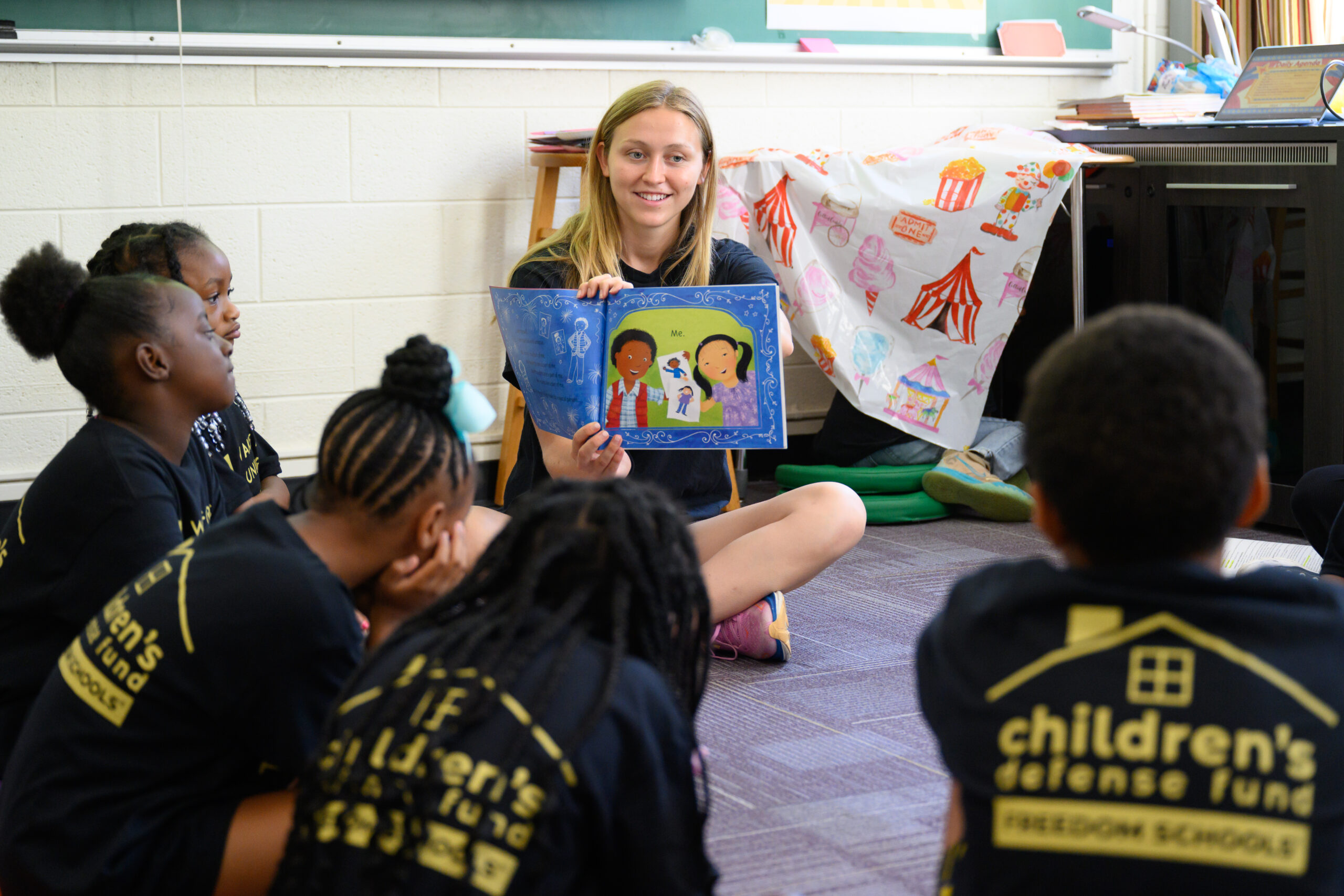
Established literacy-related programs led or supported by Wake Forest faculty that are already having community impact will be supported by the center. For example, the center supports Wake Forest Freedom School, led by Dani Parker Moore, which strengthens children’s reading skills and helps close achievement gaps for elementary and middle-school students. It also supports the Skip Prosser Literacy Program, led by Brown, which creates educational and literacy opportunities in schools for undergraduate students and student-athletes from Wake Forest University.
Life-long learning
The center will also provide grants for professional development and community engagement.
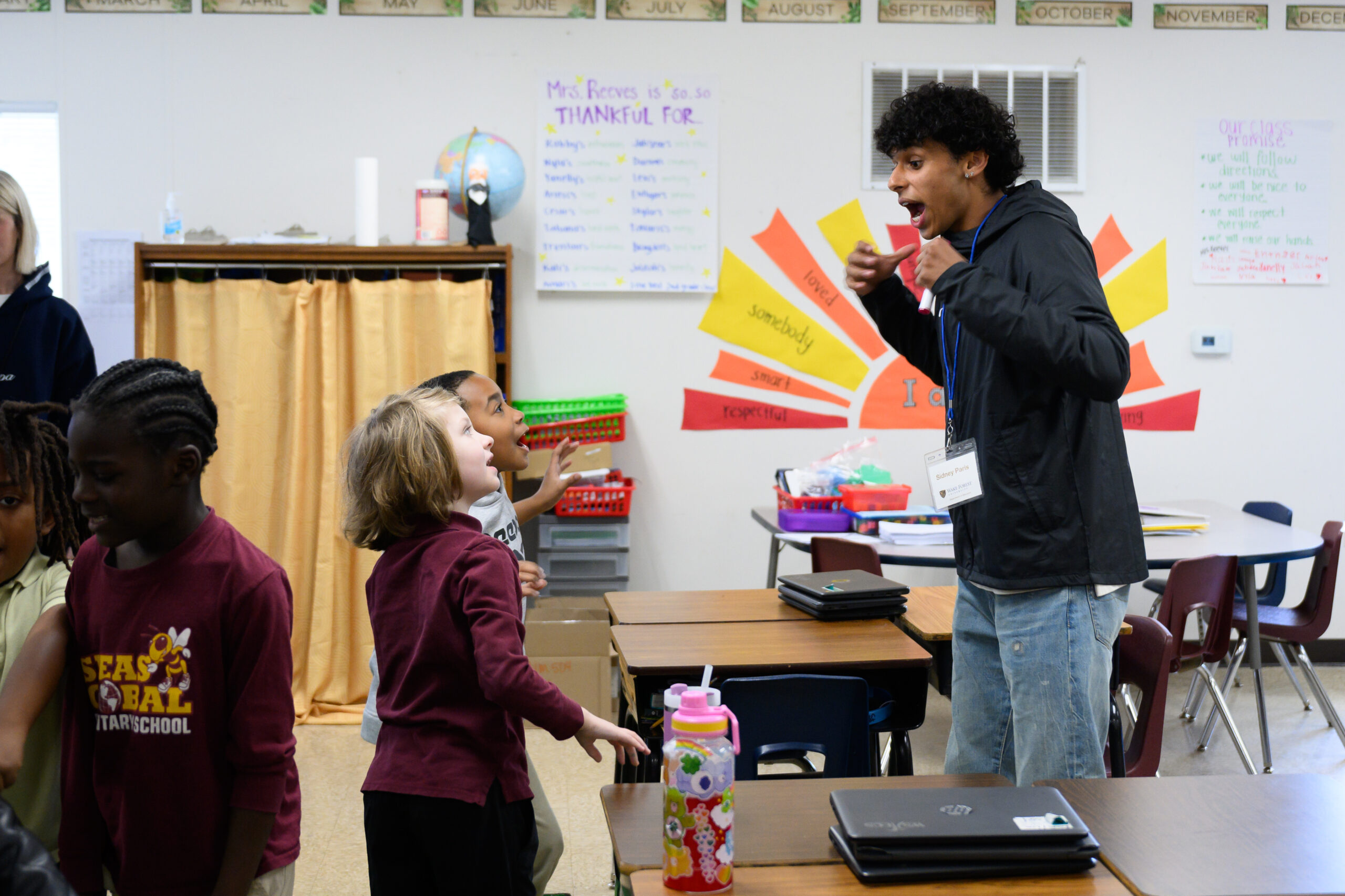
Theatre professor Brook Davis began the Theatre in Education class and is the associate director of the center. She received an early grant from the center to support work at Speas Elementary.
“An important aspect of the program is to break down barriers for learners of all ages.”
Brook Davis, a professor in the Department of Theatre and Dance
“At first, I thought of literacy as teaching young children to read as opposed to thinking of all the different kinds of ways of thinking about how we connect knowledge, particularly when people across disciplines put their heads together. It’s not just the traditional definition of literacy. It’s so much more,” said Davis.
The idea for the center began several years ago with discussions between education faculty and other departments who wanted to partner on literacy-related projects. The center makes it easier to access resources to make these collaborations a reality. It also gives faculty an opportunity to explore new teaching methods.
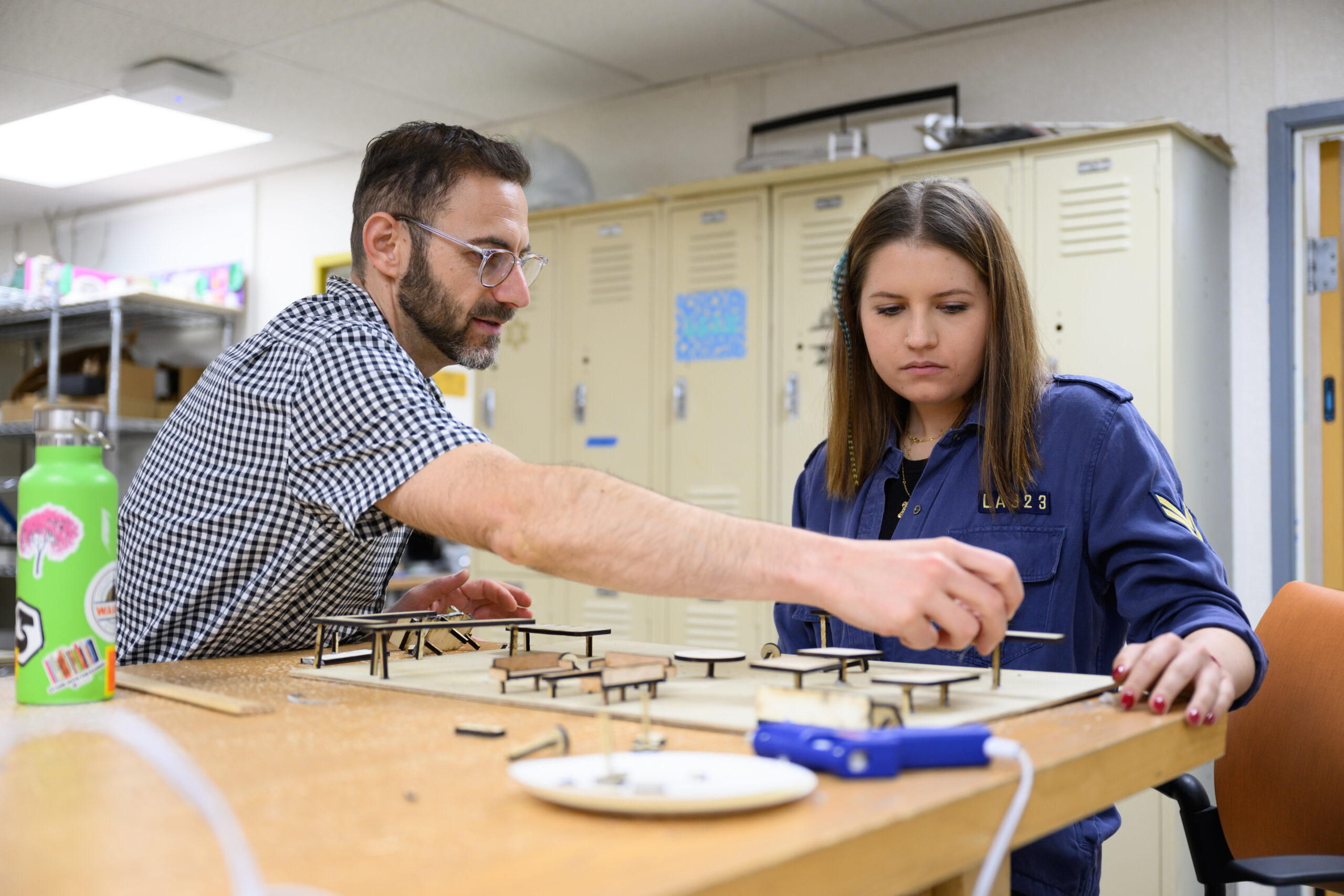
“It’s really exciting to see students when they first come in and look at the 3D printers and all of the equipment,” said Associate Teaching Professor of Education Ali Sakkal, who teaches classes in WakerSpace, the University’s makerspace.
Sakkal was awarded one of the first faculty grants from the new center to support the development of a course called Literacy in Action. “Students aren’t sure about it, but then you watch their confidence rise and see what they make. We are creating life-long learning by connecting the hand and mind to make stuff. In today’s DIY culture and Youtube, it’s another type of literacy skill.”
The grant will enable him to buy new materials for his class to use at WakerSpace in response to student interests.
“We will have more dedicated time and equipment to be creative and experiment,” he said.
Wake Forest students also have opportunities to partner with the center.
Senior Meaghan Mosher, an elementary education major, has been studying to take a Foundations of Reading test. It’s the next step to become a certified teacher in North Carolina. She and six other education majors were able to get training, resources and first-hand knowledge about the teacher licensure testing process from an education expert because of a grant from the new center. Educators from other institutions also attended to learn more about the science of reading.
The impact of partnerships
Besides awarding grants to grow initiatives on campus, the center’s primary goals will also be met by establishing local and national partnerships. This includes offering opportunities for faculty, staff and students to collaborate with these partners through events, publications and other outreach.
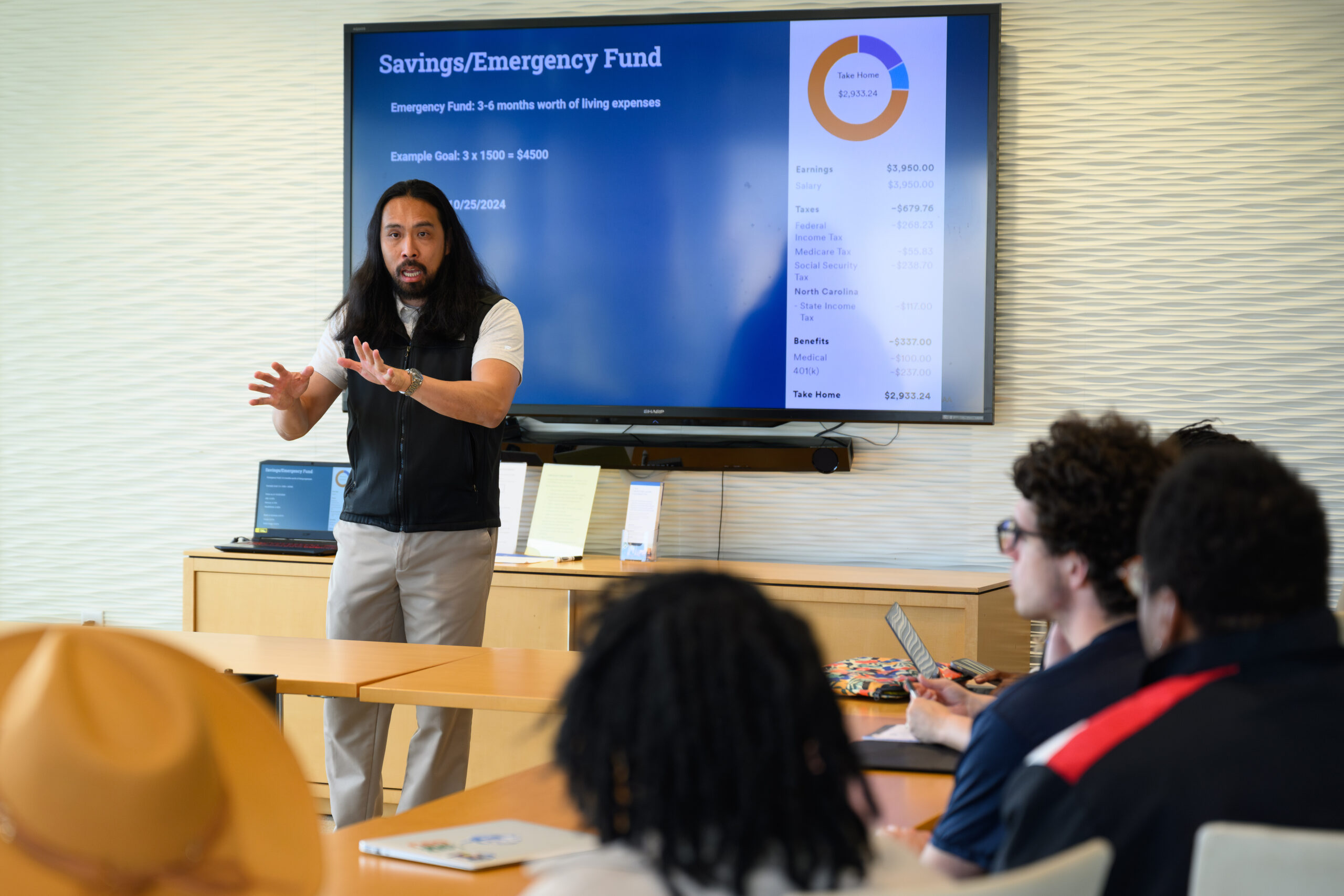
In early November, Wake Forest alumnus Brian Li (‘03) spoke at two events about his work on financial literacy. First in the Forest students attended these workshops, while another one was held at the Winston-Salem Foundation to help participants in Winston-Salem Teach to consider aspects of financial literacy such as investing and planning for retirement.
“Seminars like this are providing financial wellbeing tools, resources to teacher preparation programs that typically wouldn’t be provided,” said Kate Alman, executive director of Winston-Salem Teach.
Winston-Salem Teach is a collaboration among Salem College, Wake Forest University, Winston-Salem State University, and Winston-Salem/Forsyth County Schools. The goal is to reduce teacher shortages by creating a fast-track pipeline of exceptional teachers for Title I schools in Winston-Salem.
“We are excited about the potential opportunity for more collaborations with Wake Forest,” said Cynthia Williams Brown, associate dean of education at Winston-Salem State University and a leadership team member for Winston-Salem Teach. “I’m looking forward to some of the programming that will come out of that center because I think it’s going to benefit not only our students, but it’s going to benefit our city, the Forsyth County community as a whole.”
Categories: Arts & Culture, Community Impact, Experiential Learning, Mentorship, Pro Humanitate, Research & Discovery
Media Contact
Wake Forest News
media@wfu.edu
336.758.5237



